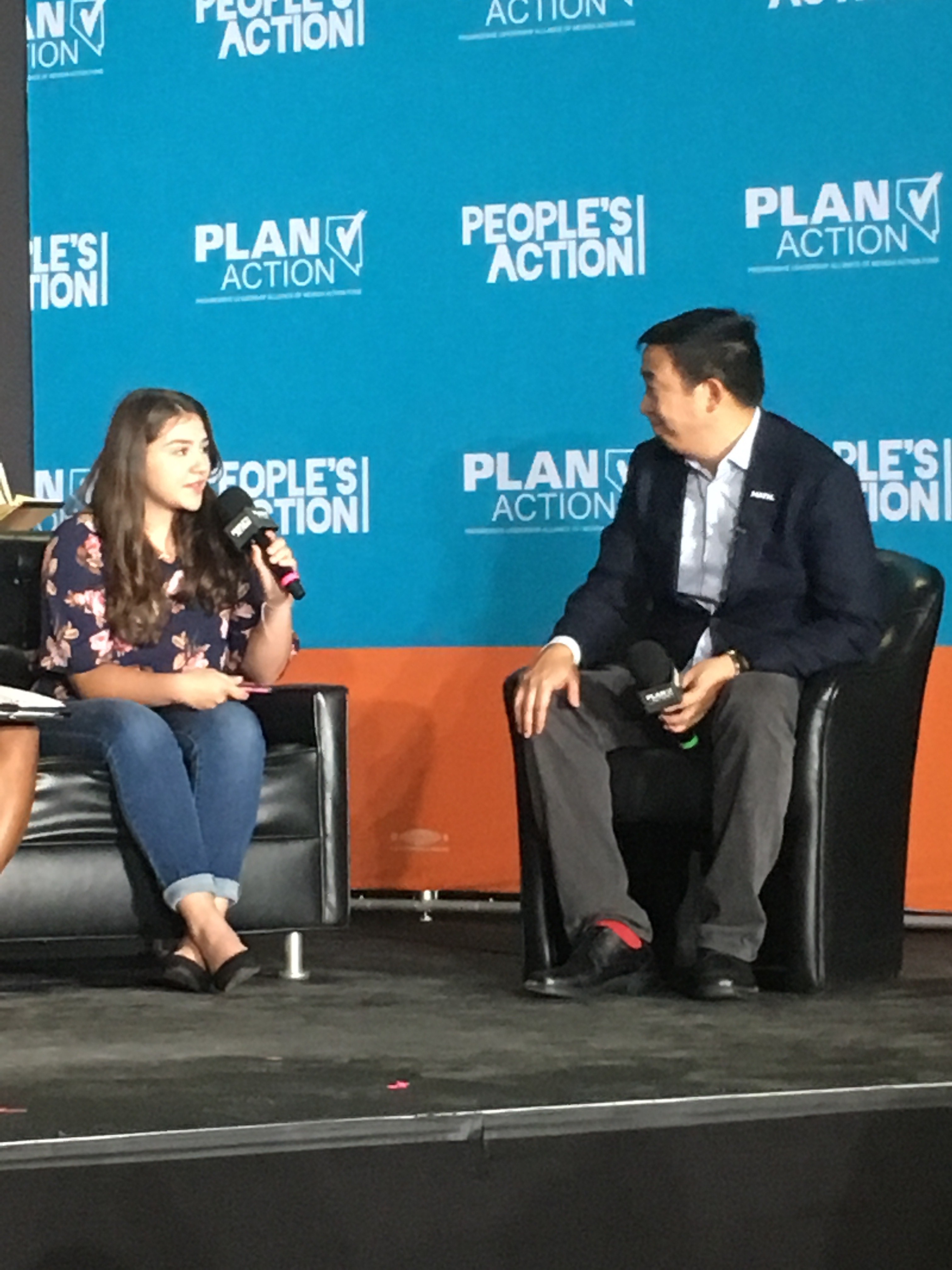This past weekend, I was able to participate in the People’s Presidential Forum in Las Vegas, where progressive activists questioned three major Democratic presidential candidates — Julián Castro, Bernie Sanders, and Andrew Yang — on a range of issues, from housing to immigration to reproductive rights to, of course, climate change. I represented Chispa Nevada, an organizing program of the League of Conservation Voters where I’ve been volunteering since last summer.
As a high school senior and as a Latina, I was excited that I got to ask a question. At the debates hosted so far, the questions have been left mostly to moderators or people living on the other side of the country. Here, we had the chance to ask about the issues Nevadans care about, and from diverse perspectives that reflect our communities.
I care about protecting our planet from the climate crisis that’s threatening the futures of young people like me. I want to hear what candidates plan to do to support clean, renewable energy that will take our communities off dirty, polluting fossil fuels.
My question was brief, and directed at tech entrepreneur Andrew Yang: I asked him why he supports storing nuclear waste at Yucca Mountain, about 100 miles from my home, when Nevada doesn’t generate any nuclear energy. 
The answer I got was pretty disappointing. Yang said it was a national issue, not just a Nevada issue. But if dangerous radioactive materials are going to be kept just miles away from millions of Nevadans, then it seems a lot like our problem. Yang kept trying to avoid the question, not answering a follow-up on how he would make our families feel safe from a nuclear accident. “It’s not really my decision,” he seemed to say. That’s not good enough for me, and it wasn’t good enough for the majority of the audience members, who waved red flags, a signal of disapproval, and booed.
Other candidates seemed to do better. When asked what he’d do to fight climate change by one of the local high school organizers of the Youth Climate Strikes, Castro said he’d not only rejoin the Paris Climate Agreement, but that he’d go beyond it and achieve a net-zero pollution economy by 2045. He talked about his support for clean transportation and higher clean energy standards, putting a carbon fee on big polluters. And he talked about how clean energy is creating jobs right here in Nevada as well as across the country.
Sanders was also asked about how he’d protect our lands, water and life by a Western Shoshone woman. He agreed that climate is an existential threat and said he’d taken on the fossil fuel industry, and that he’d involve Indigenous communities in his decision making.
Both Sanders and Castro got big applause, and lots of (literal) green flags, when they described in detail their plans to tackle the climate crisis. I was impressed with their responses and how well they seemed to know Nevada. In my opinion, Yang missed an opportunity to address my concerns, shared with millions of Nevadans, about storing nuclear waste near our homes when we want to move to 100% clean and renewable energy. He also could have done a better job explaining what he’d do to fight environmental racism, another issue so many of us care about, since so many of us in communities of color face its consequences every day.
As a Nevadan excited to vote in my first election in 2020, here’s my advice to candidates: Talk about climate change and what you’re going to do. Understand what Nevadans are worried about, and why we care so much about transitioning to 100% clean energy. Come meet with our communities and hear directly about how we are affected by pollution and environmental racism. Listen and learn so that you can not only improve your plans, but also protect our planet.
Nevadans are paying attention. Young people like me are watching. Candidates who can show us they’re ready to take on this challenge and fight for our futures will do better in Nevada and across the country. We want answers, and we want climate action — now.
